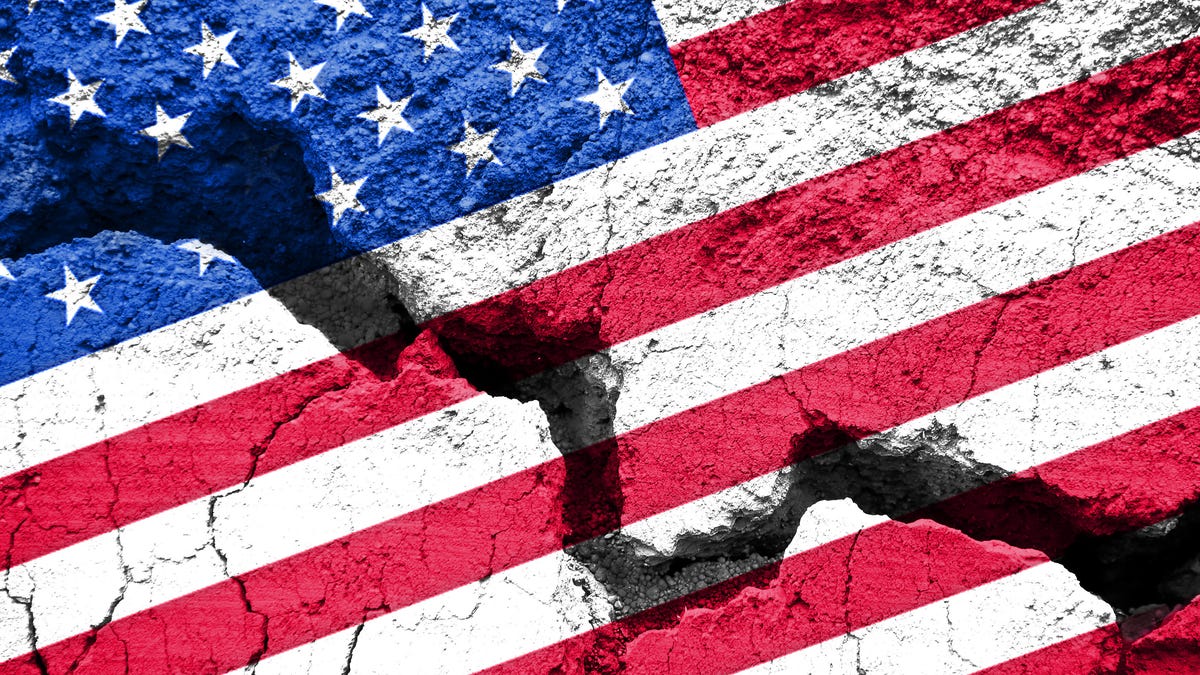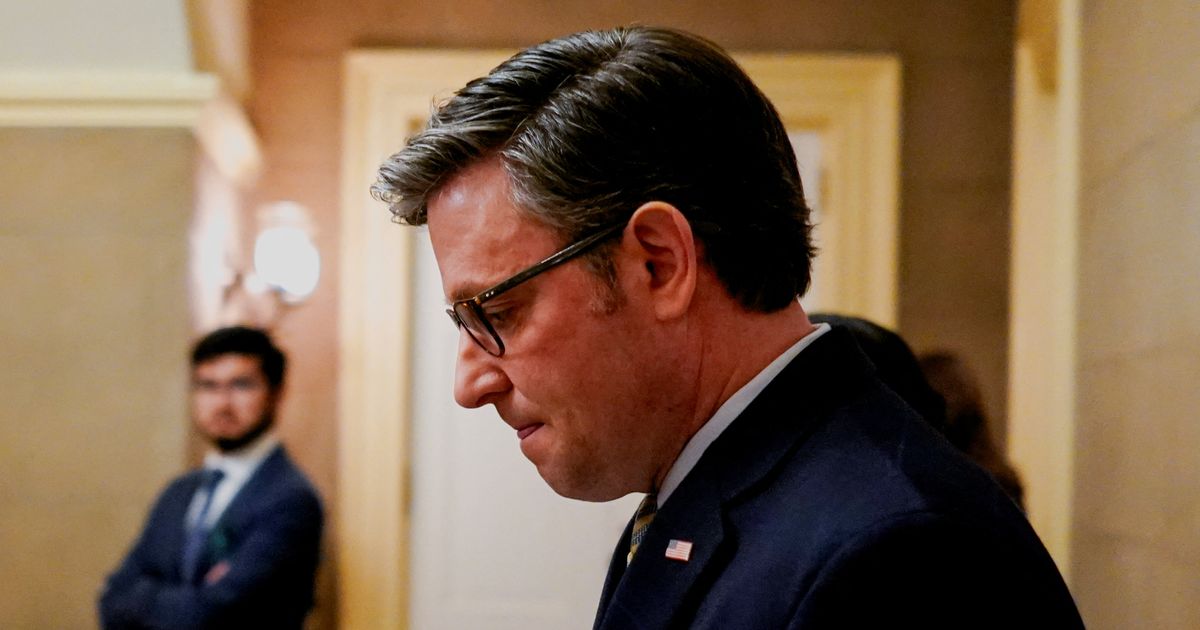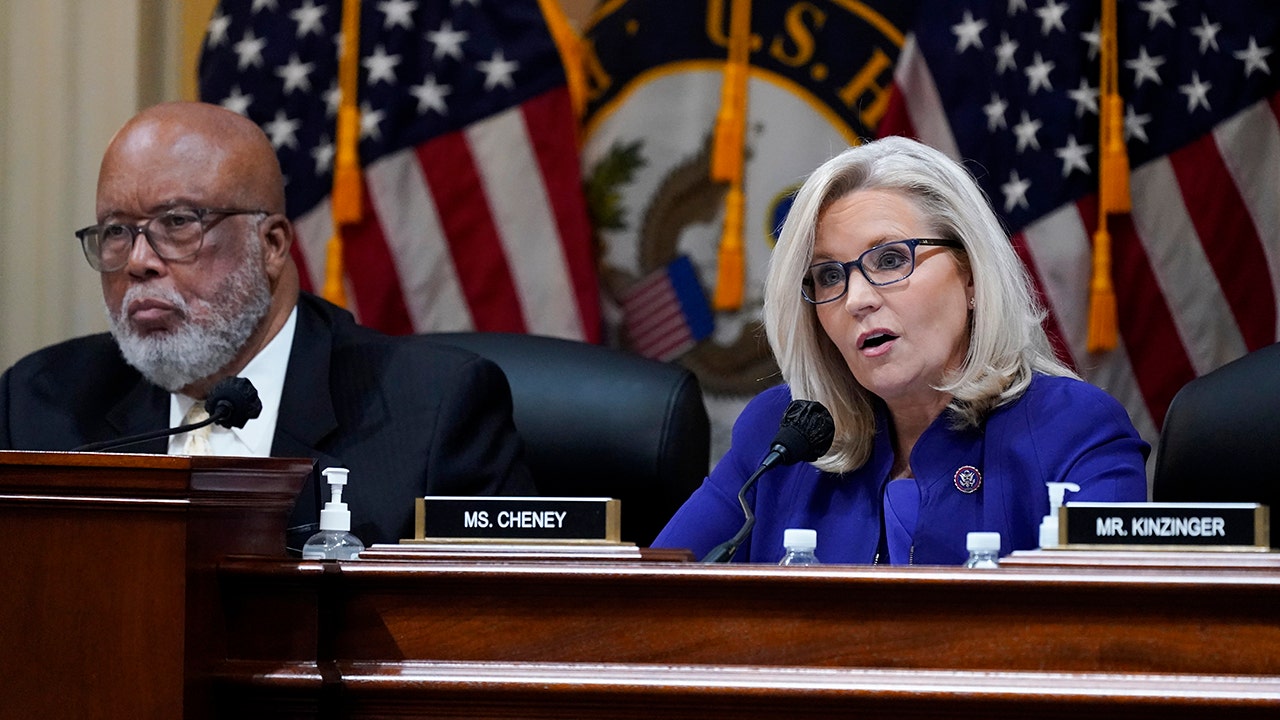The 2024 presidential election is barely in the rearview mirror and already all eyes in Wisconsin’s political world have shifted to the April election for state Supreme Court, in which liberals are looking to maintain their hold on the majority and conservatives are looking to reclaim it.
With the court expected to issue rulings on cases that could determine access to abortion and the future of Act 10, former Gov. Scott Walker’s signature law that gutted public sector collective bargaining in Wisconsin, much is on the line in the race to replace outgoing liberal Justice Ann Walsh Bradley.
The election also marks the first statewide vote in notoriously purple Wisconsin since former President Donald Trump defeated Vice President Kamala Harris in November, setting the stage for another statewide election that’s expected to draw nationwide attention, and dollars, on April 1.
People are also reading…
“We’re tracking at such a rate where I would be willing to bet the house that in the next Supreme Court race we should be seeing numbers projected somewhere around $70 million, maybe $80 million combined when it’s all said and done,” said Nick Ramos, executive director of the Wisconsin Democracy Campaign, which tracks campaign spending in the state.
Ramos said the state Supreme Court election will serve as a “political litmus test” to see whether Republicans maintain the momentum they found in November or if Democrats claim a rebound following Harris’ loss to Trump.
“I think we’re going to see all types of outside money get flooded into Wisconsin to see how this race is going to shake out because the ideological balance is back on the center stage in the state on the supreme court,” Ramos said.
Walsh Bradley announced earlier this year that she will not be seeking another 10-year term next year after nearly 30 years on the state’s highest court.
The decision came just one year after fellow liberal Justice Janet Protasiewicz won a hotly contested race for a seat on the court. Protasiewicz’s 2023 victory over conservative former Justice Dan Kelly gave liberals a narrow 4-3 majority on the court.
The race is believed to have been the most expensive judicial election in American history.
Former Republican Attorney General Brad Schimel and liberal Dane County Circuit Judge Susan Crawford are running for Walsh Bradley’s seat.
Crawford has been backed by all four current liberal justices on the court, the Democratic Party of Wisconsin’s administrative committee and the Wisconsin Education Association Council.
Schimel has been endorsed by Americans for Prosperity, the Milwaukee Police Association and more than 20 sheriffs across the state.
The election is scheduled for April 1. If at least two more candidates join the race, a primary will be held on Feb. 18. Candidates have until early January to file nomination papers.
Big money
Spending by outside groups on state Supreme Court races has ballooned over the years, climbing from a little over $27,000 in 2003 to more than $6 million spent by candidates and outside groups in the 2019 race and roughly $10 million spent in the 2020 election, according to the Wisconsin Democracy Campaign.
Those records were easily shattered last year when more than $51 million was spent by candidates and special interest groups leading up to Protasiewicz’s 2023 victory over Kelly.
Fundraising figures are just one component of a successful campaign or political party, but they can offer a glimpse into the campaign’s or party’s organization, donor base and overall support.
While the election is officially nonpartisan, political parties contribute millions of dollars and hundreds of workers to support their preferred candidates.
Ramos described big money in Wisconsin elections as “a steady problem” caused by the state’s “broken campaign finance system.”
“Both parties are taking advantage of it knowing that if they can outraise the other side they can oftentimes be able to win the election,” he said.
Campaign finance laws written by Legislative Republicans and signed in late 2015 by then-Gov. Scott Walker allow political parties to receive unlimited donations and make unlimited transfers of funds to candidates.
In an effort to reduce outside spending in Wisconsin elections, Ramos said his organization plans to make “a very big push” next year for campaign finance reform.
“A great start would be trying to do everything that we can to restore our campaign finance law system back to a pre-2015 posture,” he said.
What’s at stake
The election comes just as justices are likely to tackle a host of high-profile cases — although at least a few of those cases will probably be decided before the new justice takes the bench in August.
One of the most notable cases before the court challenges Wisconsin’s 1849 abortion law, which was revived after Roe v. Wade was struck down two years ago and has been widely interpreted as a near-complete ban on abortion.
After Roe was struck down, Democratic Attorney General Josh Kaul asked a Dane County Circuit Court judge to declare the 1849 law applies only to feticide, not consensual abortions. Kaul argued the law conflicted with later, more permissive abortion laws and court decisions, including a 1994 Wisconsin Supreme Court ruling — while Roe was still in effect — that found the law only applied to somebody killing a fetus by assaulting its mother.
Dane County Judge Diane Schlipper reached just such a conclusion last December. The case is now before the high court.
More recently, Dane County Circuit Court Judge Jacob Frost earlier this month tossed out many components of Act 10. While the law has withstood several previous legal challenges, the latest lawsuit — brought by a handful of union groups — argued provisions of the law were unconstitutional because it treats some public safety workers differently from other public employees.
Frost’s decision has been temporarily paused while the state Legislature appeals it. But the high court will have the last word on it.
The court is also expected to rule on a Republican-backed lawsuit seeking to unseat Meagan Wolfe, the Wisconsin Elections Commission’s nonpartisan administrator. Wolfe has remained at her post even though her term expired more than a year ago. The lawsuit was filed last September, after the Republican-controlled Senate voted to fire Wolfe, even though the matter was not formally before senators because she hadn’t been reappointed by the six-member Wisconsin Elections Commission.
The Supreme Court will also rule on a GOP-backed lawsuit challenging what attorneys have called an “imaginative veto” Evers issued in July 2023 before signing the state’s current two-year spending plan that locked in K-12 school funding for the next 400 years.
Under the budget Evers signed, schools would be allowed to raise revenue by $325 per student per year until 2425. Given current public school enrollment levels, that’s a more than $260 million increase per year.
Although improbable — no Legislature can bind a future Legislature, and no other state law pretends to commit the state to do anything for centuries — the funding level is current law.
While discussing the lawsuit in October, even the court’s liberal justices called the veto “absurd” and “outrageous.”
Southern Wisconsin homes for big families
5 Bedroom Home in Waunakee – $998,900
Stunning, brand new construction awaits in the desirable Westbridge of Waunakee! Upon entry to this 5BR/3.5BA home, be delighted by the sprawling open floor plan w/ sleek LVP floors leading you through the ML w/ office, mudroom, spacious living rm w/ built-ins & cozy gas fp, powder bath & more! Cooking is a breeze in the chef’s kitchen w/ high end Cafe apps, quartz breakfast bar/island, walk-in pantry, & coffee/bev bar. Upstairs find 4 beds incld. Owners suite w/ WIC, private en-suite w/ walk-in tile shower & soaking tub. Not to mention the convenient UL laundry. Exposed/walkout LL is an entertainer’s dream w/ full wet bar, family/rec area w/ fp, mini office space, 5th bed & full bath! Beautiful 3 ssn porch w/ gas fp & walk-out patio! See docs for more info/features!
View More
5 Bedroom Home in Middleton – $675,000

The Community of Bishops Bay Back Nine is an unique development on the edge of Middleton with Waunakee Schools. It is located on the back side of Bishop’s Bay Golf Course. This charming ranch with walkout lower level has 5 bedrooms, 3 baths and a totally open floor plan with cathedral ceiling. Gas fireplace, stainless steel appliances, oversized garage, open kitchen with beautiful cabintry. Large covered deck off dining area (could easily be screened) and lower level patio. Mature plantings. Homeowners have access to club house, pool & exercise area that are included in HOA fees. $198 monthly HOA dues starting Jan. 1. Home warranty included through UHP.
View More
5 Bedroom Home in DeForest – $550,000

Welcome to your dream home! This stunning 2-story residence features a brand new stained deck, perfect for outdoor gatherings in the amazing backyard. Inside, the beautiful kitchen boasts ample dining space, while the office/flex room comes with brand new flooring. With 5 spacious bedrooms and a finished basement, there’s plenty of room for everyone. The basement includes a cozy living area with surround sound, a gym (or another flex room), and a full bar for entertaining. The heated, fully insulated garage ensures comfort year-round. Located in a fantastic neighborhood, this home offers an unbeatable location close to all amenities. Don’t miss out on this exceptional property!
View More
5 Bedroom Home in DeForest – $679,000

Gorgeous 2 story home on large lot complete w/all landscaping, custom drapes & tastefully decorated. Beautiful maple hardwood floors, gourmet kitchen w/butler’s pantry w/lots of storage space, granite countertops, SS appliances, island, tile backsplash. Spacious open floor plan w/large dining space, great rm w/fireplace built-ins & loads of gorgeous windows. Beautiful office space overlooks front of the home, 1/2 bath, large mudrm w/walk-in closet. Upstairs includes 4 spacious bdrms, primary is spacious w/his & her closets, huge bath w/glass block shower, double sinks. The laundry rm is conveniently located on 2nd floor & has lots of room. LL with full bar, family rm & 5th bdrm with full bath. Oversized 3 car garage. Walking distance to 22 acre park w/bike trails.
View More
5 Bedroom Home in Windsor – $699,900

Current Status = Mechanical Roughs (estimated completion/occupancy November 2024). FINISHED BASEMENT! 5 bedroom home w/ spacious primary bedroom suite. Custom cabinets throughout featuring soft-close doors & drawers. Some selections may still be available to a Buyer to customize this home with your desired colors and materials. Exposed, finished basement with 2 bedrooms, full bathroom, and rec room w/ wet bar. Concrete patio off the 8×8 patio door, 3-car garage and kitchen appliances included (range, refridgertor, dishwasher).
View More
5 Bedroom Home in Waunakee – $675,000

Gorgeous craftsman style ranch home in Savannah Village! Short walk to elementary, pool, parks, and arboretum! 11 ft ceilings in great room w/maple built-ins, maple trim & gas fireplace. Premium cherry and slate flooring. Foyer opens to great room w/stone fireplace, transom windows & custom maple built-ins! Gourmet kitchen has granite counters and cherry cabinetry. Three bedrooms on main level including primary bedroom suite with walk-in closet & bath w/radiant floor heat, double vanities, jetted tub and shower. Exquisite finished/exposed LL family room w/custom wet bar, full bath & bedroom. Recently added BR5/guest room with built-ins and private 1/2 bath. Large main level laundry room. Very open and inviting home w/great flow for entertaining.
View More
5 Bedroom Home in Marshall – $289,900

IS THIS THE ONE? Only minutes from I94 for commuting to Madison! This home sits on a 1/2 acre+ partially wooded lot. Roughly 2,500 sq. ft. of living space to work with! Over the garage was finished adding what could be even a larger new main bedroom with spacious walk in closet and private office! Did I mention it has a natural wood fireplace on each level! 3 full baths and several updates over the last few years like roof, water heater, furnace, well pump, kitchen cabinets, some windows AND 5 sets of patio doors overlooking the back yard! There is a large screened in porch off the dining area to enjoy your morning coffee. Plenty of storage area in the unfinished part of basement. Add your personal touches with new flooring and fresh paint to make this home truly to your liking.
View More
5 Bedroom Home in Madison – $535,000

5 bedroom home with office backing to green space and over 3,000 square feet with even more room to grow in the basement. Brazilian Cherry floors throughout the first level and one upstairs bedroom. Cozy up to the fireplace. . Main level mini primary with fullbath and pocket door to make private. Main level laundry. Upstairs primary suite with vaulted ceilings, large updated bath, huge walk-in closet and attached office, nursery, flex room with a lounge bonus space. Roof and gutter guards 2023, Front siding 2024, Appliances SS 22/2023, Water softener 2020, furnace 2019. Easy access to interstate , close to shopping. Amazing setting, you’ll love the private green space in the backyard and beautiful sunsets.
View More
5 Bedroom Home in Windsor – $625,000

Stunning 2-story home on a cul-de-sac with 5 bedrooms, 3.5 baths, and a 3-car garage. A 2-story foyer leads to a versatile flex room and powder room. The open-concept layout boasts LV floors, a spacious kitchen with SS appliances, a backsplash, and a dinette, flowing into the vaulted great room. The rear foyer provides smart storage with a walk-in pantry, closet, and pocket door to the laundry. Upstairs, find 3 secondary bedrooms, a dual-vanity bath, and an owner’s suite with a tiled shower and walk-in closet. 2022 Finished lower level offers a 5th bedroom, rec room, full bath, built-ins, and beverage refrigerator. Enjoy outdoor living on the deck, patio & landscaped yard!
View More
5 Bedroom Home in Oregon – $469,900

A wonderful Tri-Level Home perfect for everyone! With 5 bedrooms you have the room for friends, family, kids, offices for working from home, hobby room, etc. A modest living room upstairs and a large family room downstairs you will never run out of room. The kitchen and dining areas are right off the main entrance with a large eat at island makes cooking a joy whether by yourself or those important in your life. Outside you will find a beautiful composite deck and patio that is wonderful to relax, host, and/or grill out. Skipping distance to the park and just don’t the road from all the local shops and the school! With the new subdivision the park is being expanded, with a walkpath, pond, and more!
View More
5 Bedroom Home in Middleton – $750,000

Welcome to your new home! This stunning property is a perfect blend of luxury and comfort. The thoughtfully crafted layout includes a first floor primary suite, convenient laundry room and a mudroom. A custom kitchen showcases elegant granite countertops, stainless steel appliances, and a walk-in pantry, ideal for culinary enthusiasts. Entertain guests in the chic dining room, complete with a stylish wine bar, or unwind in the inviting screened porch, perfect for morning coffee. 1st floor dedicated office space! Enjoy the beauty of the family room with soaring high ceilings & gas FP. Upstairs, you?ll find 3 beds + a full bath. The inviting lower level features high ceilings, custom brickwork, full exposed windows + a built-in bar for entertaining. Tons of storage space! Waunakee Schools.
View More












